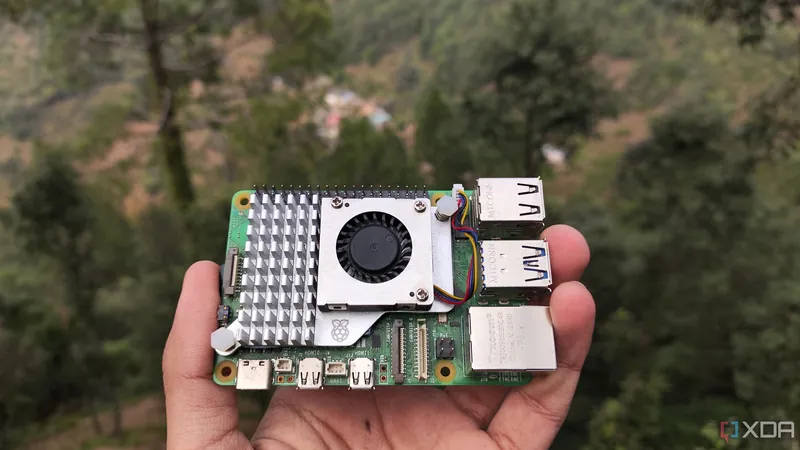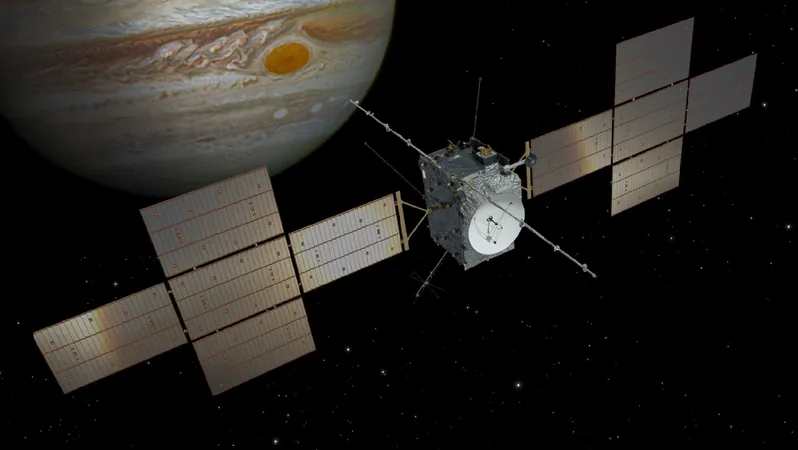
Why Cheap Mini PCs Are Outshining Raspberry Pis: A Tinkerer’s Dilemma
2025-08-17
Author: Yu
The Rise of Mini PCs: A Tinkerer’s New Best Friend
Once upon a time, Raspberry Pis were the golden ticket for aspiring tech enthusiasts. Designed to ignite a passion for computing, the Raspberry Pi lineup became a staple for DIY projects and home labs alike. I remember my first Raspberry Pi Zero experience—it opened my eyes to Linux and sparked my journey into the world of distros. But now, as the landscape changes, the beloved Raspberry Pi faces a formidable rival: budget-friendly mini PCs.
Raspberry Pi’s Growth: From Affordable to Pricey
When the original Raspberry Pi debuted at $35, it was a game-changer, offering an entry point for countless hobbyists. The price dropped even further with the release of the Model A, which came in at just $25. Even as supply chain issues caused occasional price spikes, the Raspberry Pi managed to maintain a reputation for affordability. However, times have changed. The latest Raspberry Pi 5 starts at $60, which, while offering upgraded memory options, is a far cry from the original ethos of budget-friendly tinkering.
Power Struggles: The Limitations of Raspberry Pi
The Raspberry Pi 5, which launched in 2023, might seem like a contender at first glance. However, technology waits for no one, and its ARM Cortex-A76 processor has already lost its edge—having launched five years ago! Even the addition of a PCIe slot couldn't mask the fact that its performance lags behind newer, compact alternatives. Plus, key features like hardware transcoding have been stripped away, making it less versatile than ever.
Mini PCs: The Affordable Powerhouses
Enter the mini PCs! These compact machines, especially those sporting Intel’s N97 and N100 processors, are proving to be superior alternatives for just slightly more cash. Priced as low as $120, these systems trump the Raspberry Pi 5 in performance, effectively ending the era where the Raspberry Pi was the go-to choice for budget tinkerers.
Versatility and Operating Systems: A Mini PC Advantage
Historically, the Raspberry Pi’s compatibility with various operating systems gathered a loyal following. However, this is where mini PCs shine. They support a vast array of operating systems like Windows 11, Proxmox, and many more natively—while Raspberry Pis often struggle with compatibility, especially for specialized software. This added flexibility makes them more appealing to enthusiasts eager to explore a wider range of projects.
The Case for Raspberry Pi: When Size and Power Matter
Despite the compelling edge of mini PCs, the Raspberry Pi still holds certain advantages. For specialized projects requiring small, low-power systems, especially where Power over Ethernet (PoE) is needed, Raspberry Pis remain unbeatable. GPIO-focused projects can also benefit from the dedicated features of Raspberry Pi boards. For a true budget option, the Raspberry Pi Zero is a strong contender at just $15-20.
Is It Time to Say Goodbye to Raspberry Pis?
Despite their legacy and some specific applications where they still excel, the Raspberry Pi appears to be losing its crown. As budget mini PCs become increasingly capable and affordable, they stand ready to dethrone a once-revered champion in the DIY community. Whether you're a seasoned tinkerer or just getting started, it might be time to reconsider where you invest your hard-earned cash.


 Brasil (PT)
Brasil (PT)
 Canada (EN)
Canada (EN)
 Chile (ES)
Chile (ES)
 Česko (CS)
Česko (CS)
 대한민국 (KO)
대한민국 (KO)
 España (ES)
España (ES)
 France (FR)
France (FR)
 Hong Kong (EN)
Hong Kong (EN)
 Italia (IT)
Italia (IT)
 日本 (JA)
日本 (JA)
 Magyarország (HU)
Magyarország (HU)
 Norge (NO)
Norge (NO)
 Polska (PL)
Polska (PL)
 Schweiz (DE)
Schweiz (DE)
 Singapore (EN)
Singapore (EN)
 Sverige (SV)
Sverige (SV)
 Suomi (FI)
Suomi (FI)
 Türkiye (TR)
Türkiye (TR)
 الإمارات العربية المتحدة (AR)
الإمارات العربية المتحدة (AR)